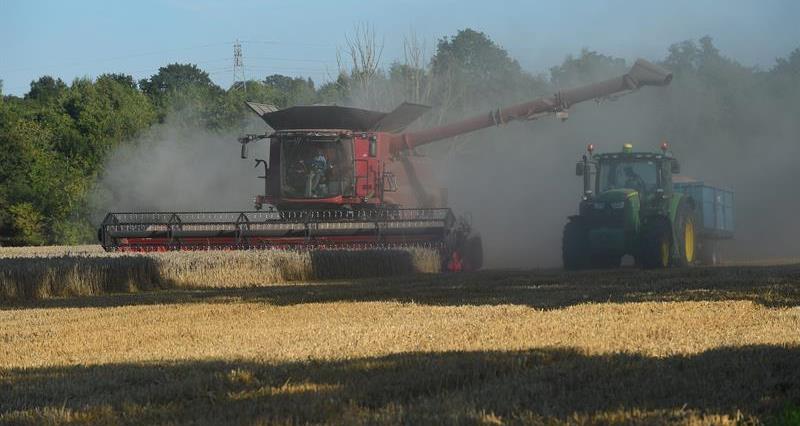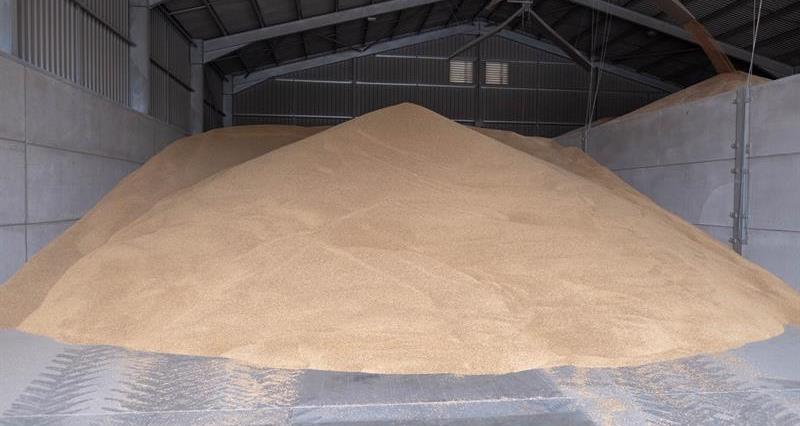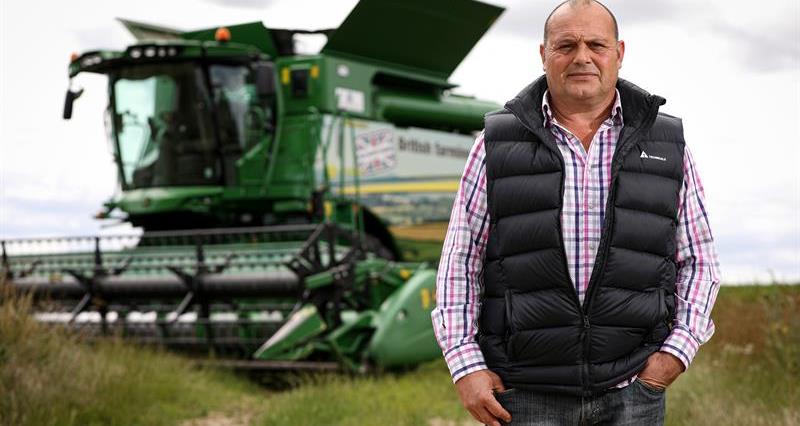As I write, combines in our area are making their first tentative starts into this year’s harvest. I’m hearing early reports of average yields for winter barley with good quality, but below average oilseed rape yields, some as low as two tonnes per hectare.
Let’s hope this improves as harvest progresses as those sort of figures for oilseed rape are clearly unsustainable and will do nothing to give growers confidence to stay with the crop for next year.
At home we have completed our forage rye harvest with pleasing results, although not as good as last year; an average yield of 32 tonnes per hectare at average dry matter of 36% is above budget, so it will again feature heavily in next year’s rotation.

We now sit with patience and wait for our spring barley to ripen as this will be our next crop to harvest. A recent assessment of our spring barley is not pointing to a high yielding crop this year – the June rains came in time to save yield prospects but not to improve them dramatically.
We are now seeing high levels of secondary growth, causing concerns for harvest management and good quality, which will be essential to achieve this year. To overcome this issue we are considering pre-harvest glyphosate applications to our spring barley this year, something I would not normally do. I am sure many growers will be considering this course of action, so it is vitally important that this is done in accordance with correct procedures.
We’re also likely to see continued disruption with on-farm merchant sampling due to COVID-19. In fact, I can’t see it taking place at all this summer and possibly over the long-term too with growing concerns over health and safety. Therefore, in most cases, sampling will now become the responsibility of the grower.
On my farms we have been sampling our own grain for a few years now and we use two methods. The first is representative sampling at intake and store filling, testing approximately every 15 tonnes which is about a trailer load.

We keep these samples in five litre cans and then sealed ones, putting one can for every 100 tonnes into store. These can then be used to fill the sample bags when merchants request them. This method is particularly useful for bin storage. We also use spear sampling for bulk storage to help check crop condition after stores have been filled.
If you’re not sure where to start, AHDB has a guide on grain sampling which can be used to tailor sampling processes to your individual requirements. However, please remember that it is up to you which sampling method you employ at harvest time.
I know that for many farmers grain sampling will come as a significant inconvenience at an already busy time of the year, but it is also hugely important that we don’t cut corners in other areas to make up the time. Of course I’m talking about health and safety. Now I know some of you will already be automatically switching off at the sight of those words – but please don’t.
For our sector harvest is the most dangerous time of the year, what with the dust, the road travel and the 25 tonne machines we’re managing. That and the fact that we’re all run off our feet working long hours in the heat.
We all know where the risks are and we all know how to mitigate them, so let’s make a concerted effort to take the time to run over the safety procedures, check all our equipment is in good working order and make sure all employees are up to speed and fully understand the correct processes to follow.
If you need safety guidance then take a look at the wealth of information on NFUonline.
I think it’s safe to say that given the year we’ve had, harvest 2020 is going to produce varying results with some growers being pleasantly surprised and others being more disappointed with their crops. But I wish you all the best of luck – stay safe, stay positive and let’s get the job done.
More from NFUonline:
